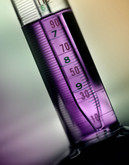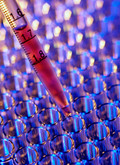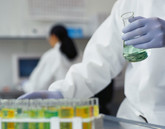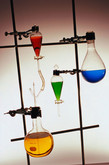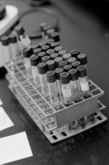Biosimilars
Biosimilarity and interchangeability under the BPCI Act
In the US, the Biologics Price Competition and Innovation (BPCI) Act was signed into law on 23 March 2010, giving FDA the authority to approve biosimilars. FDA then issued guidelines for biosimilar applications in February 2012 in the form of three draft guidance documents [1]. Despite this, there remain scientific issues regarding the assessment biosimilars and the criteria for establishing biosimilarity and interchangeability of biosimilars [2].
Positive phase I data for infliximab biosimilar
US-based Epirus Biopharmaceuticals (Epirus) announced on 4 January 2013 that its biosimilar infliximab candidate had ‘achieved bioequivalence’ to Remicade (infliximab) in a single dose comparator trial.
ProCognia completes global glycoanalysis centre
Israeli biotech company ProCognia announced on 14 January 2013 the completion of its global centre of excellence for glycoanalytics.
Overview of research on analytical techniques in the manufacturing of biosimilars in 2012
Period: January to August 2012
Biologicals are large, complex and heterogeneous proteins with variable molecular weights, typically ranging from 18,000 to 45,000 Da. The active substance of a biological is a collection of large protein isoforms and not a single molecular entity. This fact makes manufacturing of biosimilars much more of a challenge than when producing traditional small molecule generics. It also makes it highly unlikely that the active substances between two products are identical and makes it extremely difficult to establish biopharmaceutical equivalence using analytical techniques.
Teva asks FDA to delay approval of Biogen’s MS drug
Teva Pharmaceutical Industries (Teva) has petitioned FDA not to approve Biogen Idec’s (Biogen’s) investigational pill for treatment of multiple sclerosis, BG-12 (dimethyl fumarate), citing safety concerns.
Biosimilar trastuzumab made in tobacco plants
Canada-based PlantForm have altered tobacco plants to create a biosimilar version of Roche’s breast cancer drug Herceptin (trastuzumab).
Finox submits r-FSH biosimilar application to EMA
Finox Biotech announced on 20 December 2012 that it had submitted a Marketing Authorisation Application (MAA) for its biosimilar recombinant follicle stimulating hormone (r-FSH) to EMA on 30 October 2012.
Biosimilar monoclonal antibodies on the horizon in Europe
European Medicines Agency's (EMA) Committee for Medicinal Products for Human Use adopted the final guideline on biosimilar monoclonal antibody (mAb) and it came into effect in December 2012. The agency is also currently reviewing two marketing authorization applications (MAAs) for the biosimilar mAb infliximab.
Significance of locally produced biosimilars in Iran
Biopharmaceuticals, drugs produced by live cell culture, have a fast growing market for the treatment of a range of conditions. Despite their clinical importance, however, their cost could impose an increasing burden on either national healthcare systems or patients’ out-of-pocket expenses. The potential for reducing the costs of biopharmaceuticals is therefore attracting the attention of policymakers in the health sector.
Biosimilars applications under review by EMA – 2012 Q4
Last update: 23 August 2013
European Medicines Agency (EMA) is the body responsible for approval of biosimilars within the EU. A legal framework for approving biosimilars was established in 2003. Approval of biosimilars is based on an abbreviated registration process, which allows biosimilars manufacturers to provide a reduced package of information compared to originator drugs, provided they can prove ‘similarity’ to the originator or ‘reference drug’.
